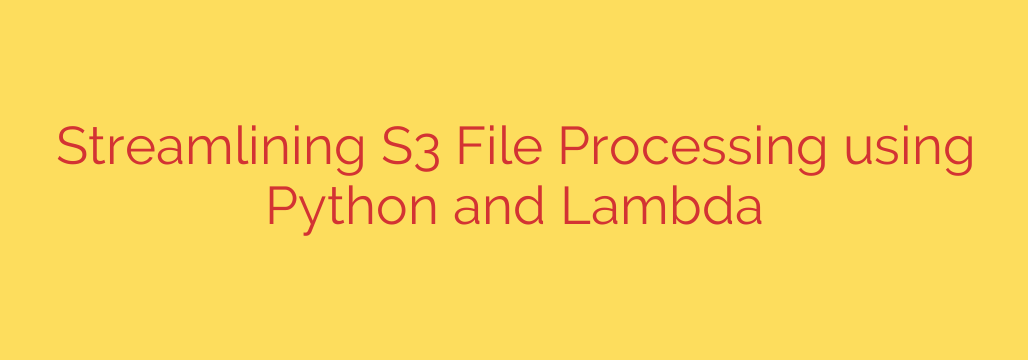
Automating file processing within cloud storage buckets offers tremendous efficiency gains. Instead of manual steps or managing dedicated servers, a serverless architecture provides a powerful and cost-effective solution. By leveraging event notifications from your storage service, you can trigger compute functions precisely when new files arrive or existing ones are modified.
Consider a scenario where files are uploaded to a storage bucket. Immediately upon upload, an event can be configured to fire. This event can then invoke a serverless function, such as one built with AWS Lambda and written in Python. The Python code within the Lambda function is specifically designed to handle the file. It can access the file directly from the storage bucket, perform the necessary operations – whether it’s data transformation, validation, analysis, or conversion – and then potentially store the results in another location or trigger subsequent workflows.
This approach is highly scalable because the serverless function automatically scales based on the volume of incoming events. You pay only for the compute time consumed during the processing, which is significantly more efficient than running always-on servers. Furthermore, the operational overhead is drastically reduced, as there are no servers to provision, patch, or manage. Using Python makes the file processing logic flexible and straightforward, benefiting from Python’s extensive libraries for data manipulation and various processing tasks. Streamlining your cloud storage interactions this way leads to faster, more reliable, and ultimately, more economical file processing workflows. This method represents a significant advancement in handling data within modern cloud environments, enabling powerful automation right at the point of storage.
Source: https://www.fosstechnix.com/s3-file-processing-with-python-and-lambda/








